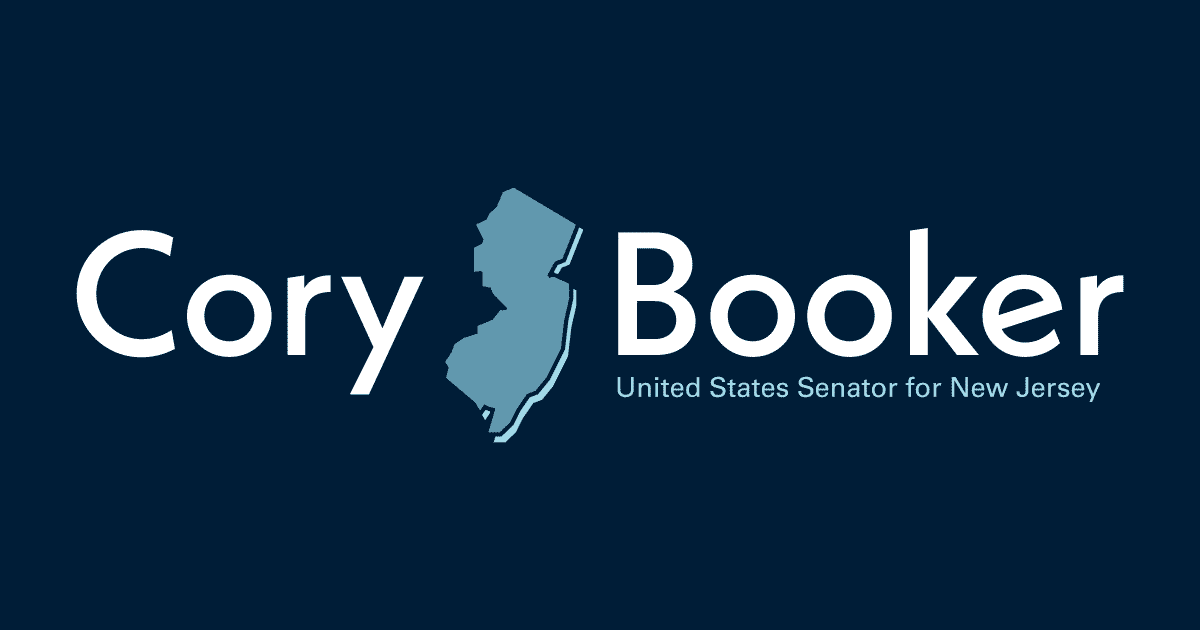Source: United States Senator for New Jersey Cory Booker
WASHINGTON, D.C. – U.S. Senator Cory Booker (D-N.J.), along with U.S. Representatives Alma Adams (NC-12) and Lauren Underwood (IL-14), introduced the bicameral resolution recognizing Black Maternal Health Week, “to bring national attention to the maternal health crisis in the United States and the urgent importance of reducing maternal mortality and morbidity among Black women and birthing persons.” Black Maternal Health Week is observed from April 11 through April 17.
The resolution underscores the disproportionate health complications suffered by Black birthing people during pregnancy who face a maternal mortality rate three times that of their white counterparts due to structural racism and gender oppression in maternal health care experiences. The COVID-19 pandemic has further exacerbated these inequities, with data from the Centers for Disease Control and Prevention indicating that the maternal mortality rate for Black women has increased by 26% since the pandemic began. In order to reverse these alarming trends, the resolution calls on Congress to “support and encourage policies grounded in the human rights, reproductive justice, and birth justice frameworks that address Black maternal health inequity.”
“The US maternal mortality crisis, especially among Black Americans, requires urgent attention and action,” said Senator Booker. “As the richest country in the world, it is a travesty that our nation continues to top the maternal mortality rate among its peer countries. We must do more to address this crisis and find meaningful solutions that will end the disparities in care that Black people face when giving birth. I am proud to work with my colleagues on this resolution that calls on Congress to improve Black maternal health by providing economic support, promoting community-driven solutions to better understand the causes of maternal death and complications from birth, and increasing access to quality, affordable health care for Black communities.”
“During Black Maternal Health Week we recognize maternal health disparities and recommit to creating a world where maternal justice and equality are a reality,” said Representative Adams, co-founder and co-chair of the Black Maternal Health Caucus. “In 2018, I was honored to introduce the first Congressional resolution recognizing Black Maternal Health Week with then-Senator Kamala Harris and Black Mamas Matter Alliance. In 2019, I asked the youngest Black woman elected to Congress, Lauren Underwood, if she wanted to launch a Congressional Caucus focused on Black maternal health. So, we launched the Black Maternal Health Caucus, which now boasts 115 bipartisan Members of Congress. In 2020, we introduced the Black Maternal Health Momnibus Act – a package of 12 bills to comprehensively address existing gaps in policy solutions to the maternal health crisis. The bill was crafted with Black women, by Black women and for Black women. Last Congress, we re-introduced the Momnibus, and passed the first bill from the package. I’m so excited to continue this work in this Congress, because Black mamas can’t wait.”
“Our country’s Black maternal health crisis demands urgent action,” said Representative Underwood, co-founder and co-chair of the Black Maternal Health Caucus. “In 2019 I co-founded the Black Maternal Health Caucus with Congresswoman Alma Adams to respond to this crisis and advance evidence-based solutions that will save lives and end disparities. I’m thrilled to continue this work by introducing this resolution with Congresswoman Adams to recognize Black Maternal Health Week 2023 and I am grateful to the Black Mamas Matter Alliance for their leadership in establishing this critical week of awareness and action. We must continue to elevate Black maternal health as a national priority and pass the entire Momnibus.”
“BMMA founded Black Maternal Health Week in 2018 to build awareness, activism, and community aimed at amplifying the voices of Black Mamas, and centering the values and traditions of the reproductive and birth justice movements. As we reckon with the upending of Roe V. Wade and the relentless attacks against reproductive rights and bodily autonomy, the theme for this year’s Black Maternal Health Week campaign – Our Bodies Belong to Us: Restoring Black Autonomy and Joy – speaks to our strength, power and resilience, and our unassailable right to live freely, safely, and joyfully,” said Angela D. Aina, Co-Founder and Executive Director of Black Mamas Matter Alliance, Inc.
“March of Dimes commends Representatives Alma Adams, Lauren Underwood and Senator Cory Booker for leading this year’s Black Maternal Health Week Resolution and their continued efforts to address the alarming state of Black maternal health. In the U.S., Black women are three times more likely to die from pregnancy-related causes and 50 percent more likely to have a preterm birth as compared to White women. It is past time we address the structural racism and inequities in social determinants of health that contribute so significantly to the disproportionately high rates of maternal mortality and morbidity among Black women,” said Stacey Y. Brayboy, Sr. Vice President, Public Policy & Government Affairs.
Quotes from additional organizations can be found here.
The resolution is cosponsored by: U.S. Representatives Allred, Balint, Beatty, Blunt Rochester, Bonamici, Brown, Budzinski, Bush, Carson, Carter, Cardenas, Castor, Cherfilus-McCormick, Chu, Clarke, Cleaver, Cohen, Connolly, Crockett, Crow, Davids, Dingell, Escobar, Evans, Garamendi, Garcia, Goldman, Gottheimer, Hayes, Kamlager-Dove, Kelly, Krishnamoorthi, Kuster, Lee, Jacobs, McClellan, McGovern, McCollum, Meeks, Meng, Moore, Morelle, Moulton, Nadler, Omar, Payne Jr., Plaskett, Pressley, Ross, Sablan, Scanlon, Schloten, Sewell, Slotkin, Smith, Soto, Stansbury, Stevens, Strickland, Sykes, Thanedar, Trone, Wasserman Schultz, Watson Coleman, and Veasey; U.S. Senators Merkley, Cortez Masto, Markey, Warren, Padilla, Blumenthal, Murray, Menendez, Duckworth, Smith, Baldwin, Van Hollen, Durbin, Stabenow, Rosen, Sanders, Brown, and Klobuchar.
The full list of supporting organizations can be found here.
The full text of the resolution can be found here.
